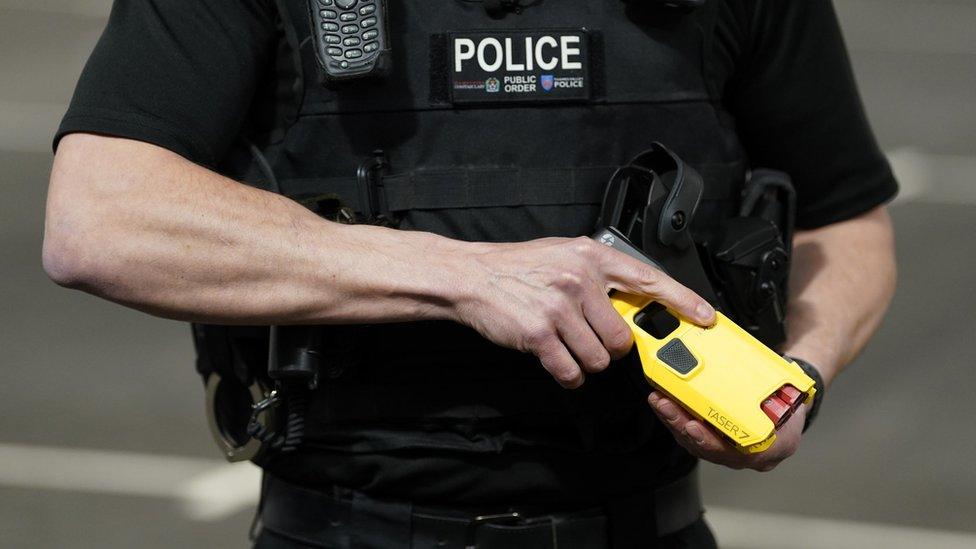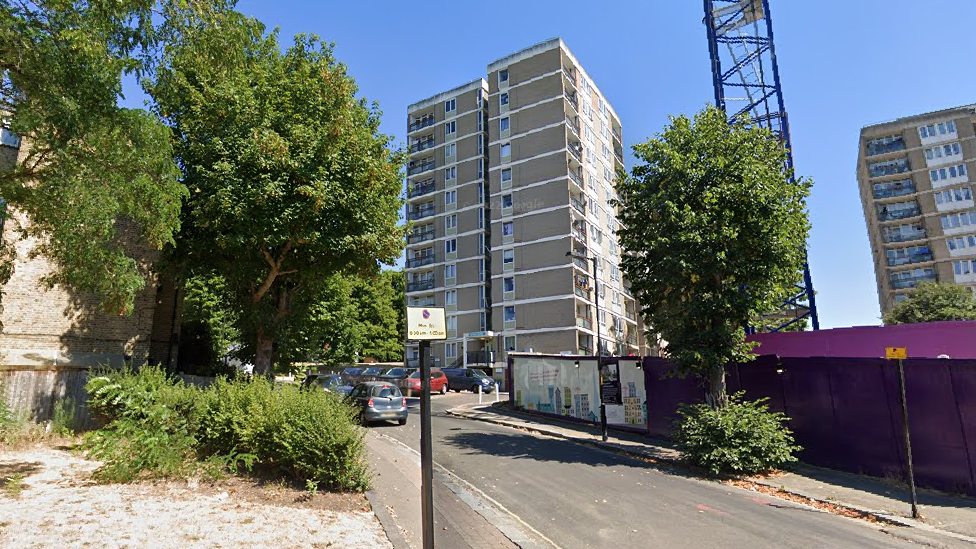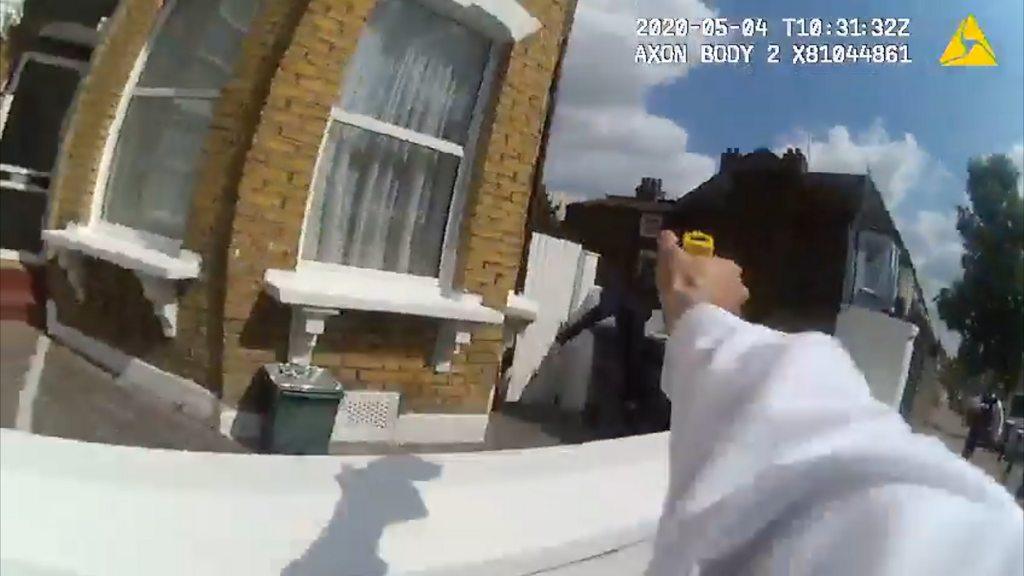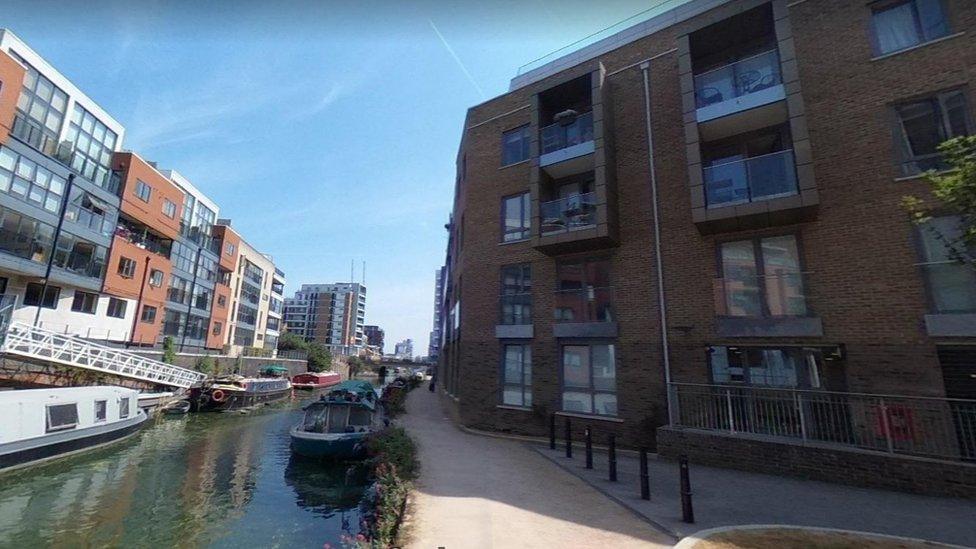Youth worker loses damages fight after police Tasered him
- Published

The court heard that Mr Afriyie's arms had been folded when he was Tasered
A youth worker Tasered after being stopped by police while driving through central London in April 2018 has lost a High Court damages fight.
Edwin Afriyie, who is in his mid-30s, said he suffered head, back and leg injuries during the incident in King William Street, external.
Mr Afriyie took legal action against the City of London Police and made a misfeasance allegation.
Police disputed his claims and a judge ruled against him on Friday.
A barrister representing Mr Afriyie, who lives in Hayes, west London, said the Tasering was not in response to any "identified threat".
David Hughes said the police's use of Tasers should be proportionate and lawful and suggested that their authority had been wrongfully exercised.
'Objectively reasonable'
Mrs Justice Hill dismissed Mr Afriyie's assault, battery and misfeasance in public office claims.
Mr Afriyie is black, but the judge said he had not "advanced a claim" under equality legislation nor sought to argue that officers' treatment of him was "motivated by his race".
She had watched police bodycam footage showing Mr Afriyie being Tasered after officers said he was being arrested for not providing a breath sample.
Mr Afriyie, who was charged with failure to provide a specimen for analysis arising from the incident, was standing with his arms folded when he was hit and footage, available online, external, showed him falling backwards, landing with his head on a step and his body on the pavement.
She said police had proved that a police constable "honestly believed" that the use of the Taser was "necessary".
The judge added that the belief was "objectively reasonable".
"Mr Hughes submitted that I should find as a fact that nothing was about to happen that necessitated the use of force," she said.
"He may be right that nothing would, in fact, have happened had the Taser not been discharged.
"However what matters is whether [the officer's] belief in what might happen, so as to justify the use of the Taser, was objectively reasonable."
Another judge had overseen a trial of the same case at the High Court last year but fell ill and was unable to complete it.
It was reported elsewhere that Mr Afriyie is considering an appeal, external.
Correction May 9, 2024: This article was edited to reflect that Mr Afriyie was charged with failure to provide a specimen for analysis. It was also edited to report that another judge and not Mrs Justice Hill had overseen the trial at the High Court last year.

Follow BBC London on Facebook, external, Twitter , externaland Instagram, external. Send your story ideas to hellobbclondon@bbc.co.uk, external
Related topics
- Published12 May 2023

- Published3 May 2023

- Published8 May 2023
